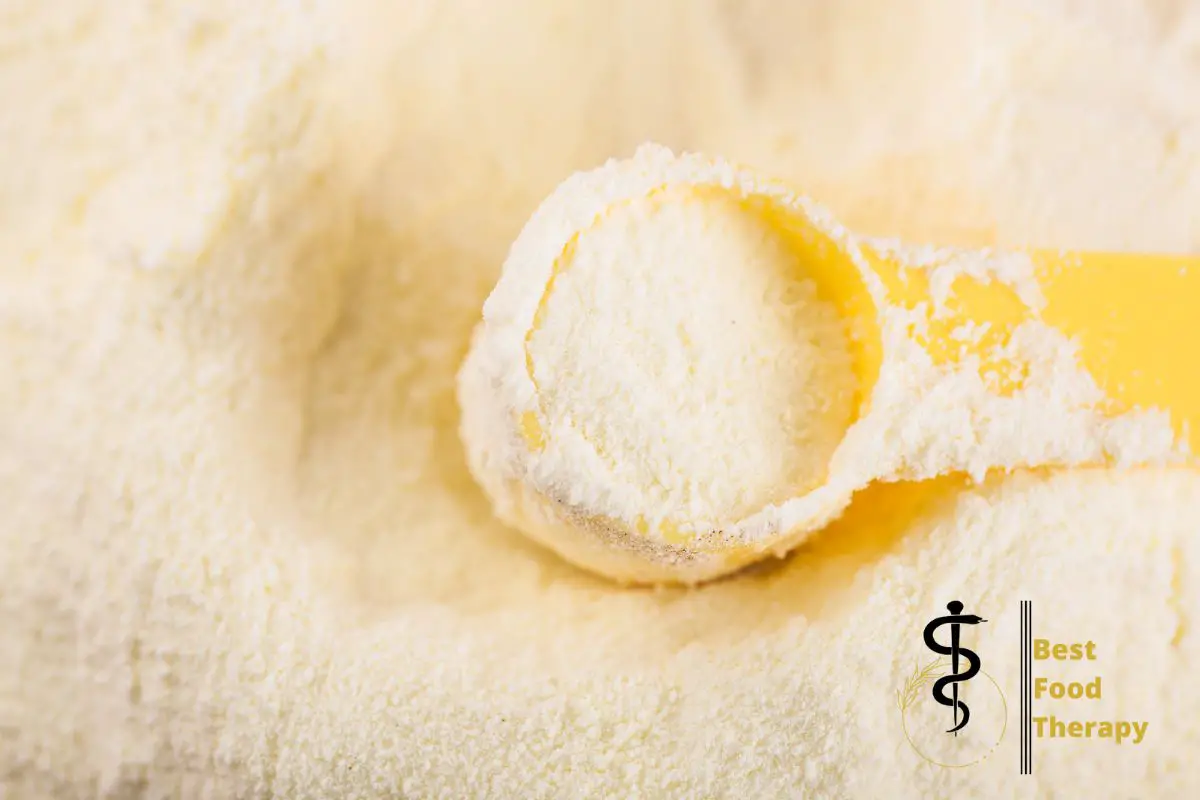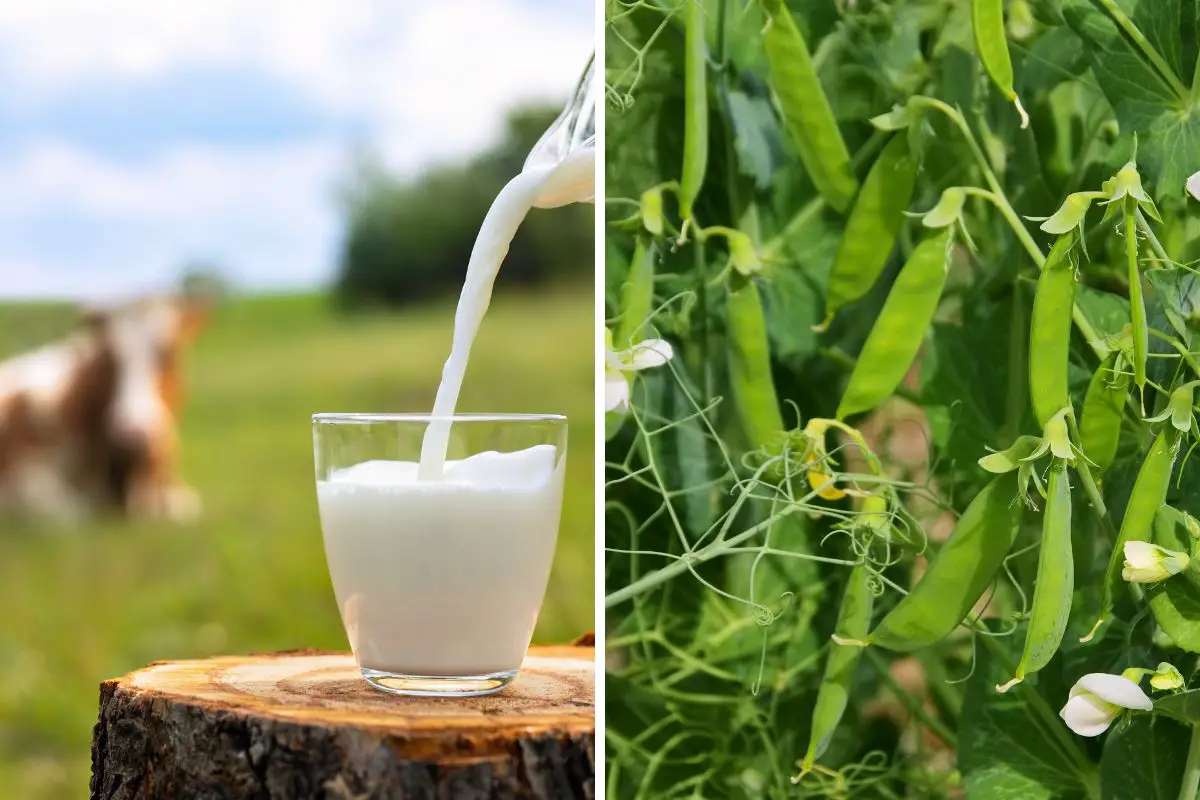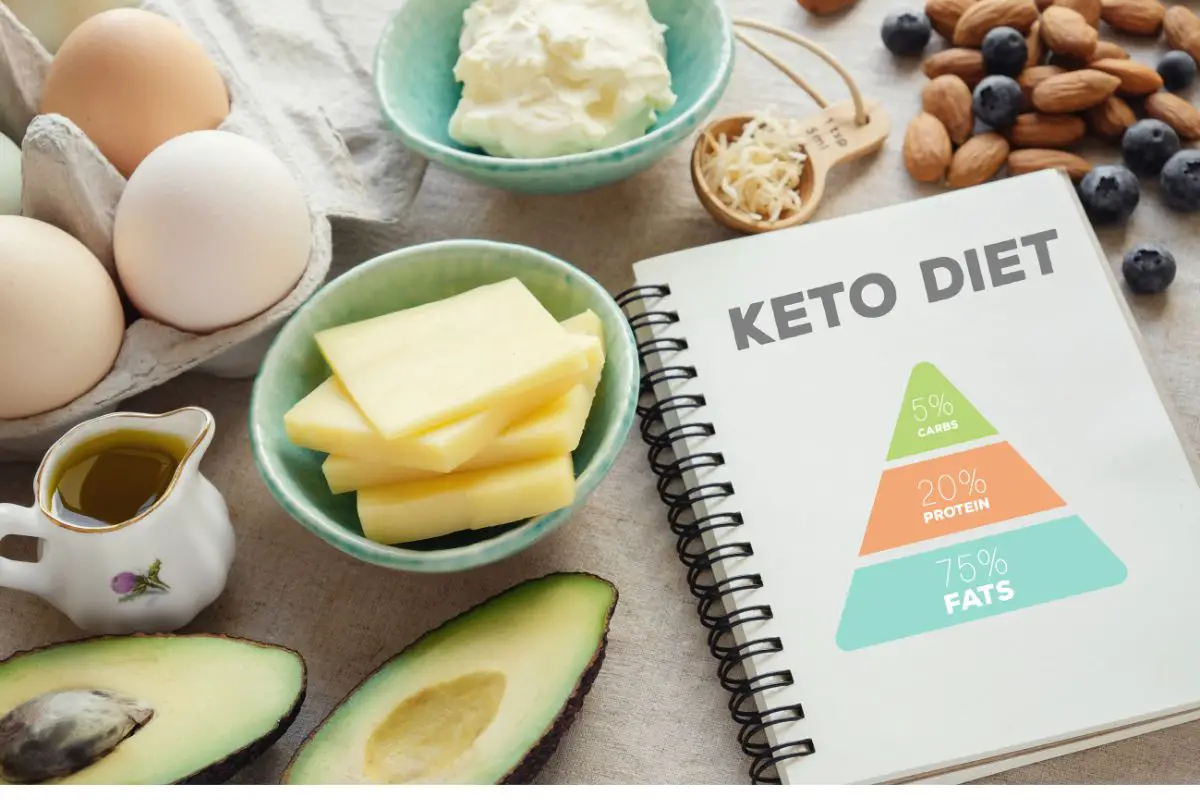SUBSTITUTE FOR POWDERED MILK

What is Powdered Milk?
Powdered milk is simply dehydrated milk. As the water is removed by physical scientific methods, the result is a product in the form of a yellowish-white powder that retains almost all the natural properties of milk but is less perishable. It is an easily transportable product with a small volume and exhibits a significantly longer shelf life than pasteurized liquid milk. The shelf life of powdered milk can last up to 18 months, whereas it is only a few days in the case of fresh milk.
Most of the time, the fortification of powdered milk is carried out to obtain a high energy value or a high amount of protein. Also, vitamins and calcium are sometimes added. The powder does not lose the nutritional elements of the milk. Once reconstituted with water, it has a nutritional value similar to liquid milk, nevertheless, many people look for a substitute for powdered milk due to certain reasons that will be discussed later in the article.
Unlike liquid milk, powdered milk does not require refrigeration once the container is opened. All this is if the storage conditions are adequate (powdered milk is not much stable at high humidity or high ambient temperature). This type of milk comes in many varieties, including buttermilk, skimmed, or whole dried milk. Therefore, it can be used as an alternative to liquid milk in many situations.

The Properties of Milk Powder
In addition to being a source of nutrition for infants (research shows that mother’s milk is the best substitute for powdered milk), powdered milk allows the use of vegetable fat instead of cream for the production of dairy products such as cheese, ice cream, yogurt, chocolate, pastries, and bakery products, etc. Therefore, powdered milk is extensively used in the dairy industry for the purpose of fortification, thickening, taste and texture.
In general, the rate of addition of powdered milk in yogurt can vary from 1% to a maximum of 6%, but the recommended level is 3% to 4%, as the addition of higher levels can result in off-flavor. A yogurt made at home would have two ingredients: milk and lactic ferments. But in many of the yogurts that are marketed, if we look at the ingredients label, we see that they contain a third element, such as skim milk powder, whey concentrates, or caseinates.
This is so because this type of milk is more concentrated and therefore, it is easier to achieve a different texture and thickness of yogurt. The purpose of adding powdered milk to industrial yogurts is to ensure a homogeneous consistency. Another substitute for powdered milk, Gelatin can also be added to yogurt, specifically in flavored yogurts and yogurts with fruit.
Powdered milk is also a common ingredient in making ice creams. But a problem arises in this case. Being concentrated, it may contain a higher fat percentage. As a result, the fat percentage of the ice cream may elevate up to 25%, which is not a healthy option. Therefore, substitute for powdered milk for ice cream manufacturing is being researched by the relevant industries.
What Powdered Milk is Used For?
The food industry uses powdered milk for various reasons. One typical example is the chocolate industry. The addition of liquid milk is not possible (in the case of milk chocolate) because the contribution of water would ruin the chocolate. Therefore, the use of dehydrated milk becomes a good way to add milk to this product.
Unfortunately, some fake whey protein manufacturers also add powdered milk as filler. Consqeuently the resulting product becomes inferior in quality.
Another reason is to take advantage of surplus milk. As discussed above, the conservation of fluid milk is quite limited due to its short shelf life. But if it turns into powder, the storage time is lengthened and the transport conditions are simplified. Additionally, the powder can be rehydrated and the resulting milk used for a wide variety of products. But still, because of numerous rumours and some health-related issues, research and development are being done on the substitute for powdered milk.

Why Go for The Substitute for Powdered Milk?
There are several reasons why people search the substitute for powdered milk, some reasons include:
- Lactose allergy
- Intolerance of animal milk powder
- Vegetarian diet
- Allergic to the taste
- Cholesterol concerns
- Fitness
There are endless reasons why many people prefer to consume plant-based milk in addition to cow’s milk powder.
Studies emphasize that the body tolerates the consumption of milk powder of animal origin less well with increasing age. Given such an observation, the only alternative to benefit from milk’s nutritional contributions is to consume plant-based milk. Here are the best body-safe substitute for powdered milk in this article.
A study done by our research group (Ajaz, 2018) found higher levels of lead in powdered tea whiteners and infant formula milk, in comparison to fresh milk. The presence of contaminants in the powdered milk can be attributed to the chemical or physical production of the powdered milk.

Substitute for Powdered Milk: Why Some People are Reluctant Consuming Cow’s Milk?
In addition to intolerance to powdered cow’s milk, and in particular, to the lactose, it contains, it is now not uncommon to find people who have given up the consumption of powdered milk.
Animal rights activists are one of those who criticize the conditions in which cattle are placed, as a result, they too explore substitute for powdered milk. Similarly, the case of the vegetarian population is understandable, while many other people do not consume powdered milk because of fears of contamination.
Let us look at some available substitute for powdered milk:
Sheep Milk Powder as an Alternate
Although of animal origin, sheep milk powder is quite different from that of cow milk powder. It contains 50% more calcium and is less exposed to microbial agents. Sheep farming is not as intensive and industrial as that of cows. Therefore, the use of antibiotics is much less common and their diet is less subject to growth factors. As for lactose, there is a similar amount to that found in cow’s milk, except people who are lactose intolerant can still consume small amounts of sheep’s milk powder without fear of allergies. This fact can be explained by the presence of a small amount of casein contained in sheep’s milk.
Plant Milk: A Good Substitute for Powdered Milk, Not Only for Vegans
As an alternative to cow’s milk powder, many people turn to plant milk, and contrary to the popular belief, this type of milk is not just intended for vegans. One can drink plant-based milk either for cow’s milk intolerance, for taste, or to lower your bad cholesterol levels. In terms of taste, plant drinks are just as appetizing as cow’s milk and can be used both in home cooking and for baking purposes.
Milk powder made from soy or other grains is high in fiber, low in fat, and free of cholesterol. Although it sometimes contains less calcium, the latter is better absorbed than powdered cow’s milk, whose acidity is counterproductive in this respect. Plant milk powder also allows you to vary the taste of your milk consumption and enjoy a healthy diet.
Benefits of Plant Milk
- Hazelnut, coconut, rice, and soy milk have a nutritional value that is in no way inferior to cow’s milk, therefore, can be the best substitute for powdered milk. Many preach the health benefits of cow’s milk but fail to mention that it contains high levels of fat and bad cholesterol.
- Plant milk contains no cholesterol and even less lactose. This milk is particularly recommended if you have an intolerance to certain substances such as lactose or casein, or if one has higher cholesterol levels.
- Plant milk is rich in mineral salts, vitamins, and unsaturated fatty acids. It is ideal for people suffering from cardiovascular diseases, thanks in particular to a high percentage of monounsaturated and polyunsaturated fats that do not make the heart aggressive.
- In case of slow digestion, recurrent constipation, or irritable bowel syndrome, plant-based milk is an excellent alternative.
- Medical professionals and nutritionists recognize the disadvantages of cow’s milk, especially in children. Because of this, they recommend using plant-based milk being a healthier option.

Almond Milk as a Substitute
Almond milk is another substitute for powdered milk, it is the ideal milk for anyone who wants to continue drinking milk but wants to lose weight as well. And for good reason, almond milk contains no saturated fat, even less lactose, and is quite low in calories. You can either buy it from supermarkets or, for much better quality, make it yourself for your use.
How to Prepare Almond Milk at Home?
- Pour almonds into a small glass previously filled with water.
- Three to five hours later, remove the almonds and blend them in a powerful blender.
- Finally, press in a fine cloth like a coffee filter to catch the milk.
This recipe is simple and practical to prepare homemade organic milk without additives and sterilization issues. It is easily digestible and rich in vitamins, fiber, calcium, magnesium, iron, and protein.
Soy Milk
Soy milk is a popular substitute for powdered milk. One can easily get it in most supermarkets. For dishes that require the use of milk, its neutral taste makes it perfect, but it is not recommended for babies and children because it takes longer to digest. It is good for the elderly, people with diabetes, or people with high cholesterol. It contains balanced amounts of potassium and calcium, which is ideal for controlling high blood pressure. Women suffering from premenstrual syndrome should consume soy milk to relieve symptoms as it contains isoflavones. Be careful though, buy organic soy milk and not GMO-derived soy milk.
Rice Milk
Gluten-free, with no added sugar, and very easily digestible, rice milk is the kind that should be given to children. However, the taste may vary depending on the type of rice. This milk has the special advantage that it contains as much calcium and vitamins as cow’s milk, but has a lower fat content. Its high fiber content supports digestion in children and the elderly. However, since its nutritional value is quite low, it still can be considered as reliable substitute for powdered milk.

Summary
As per our research, it can be concluded that there are better alternatives for low-quality powdered milk. If processed carefully and free of contamination, powdered milk has the same benefits just as fresh cow milk. Nevertheless, consuming a substitute for powdered milk can be beneficial for people with certain allergies and ideologies.
Please tell us in the comments section, which milk would you choose for yourself. Would you still prefer cow’s milk or would you opt for a healthier substitute for powdered milk?

Hi, I am Humayun, I hold MS and PhD degrees in Chemical Sciences from Germany. Currently I am working as faculty at the Department of Chemistry, Food Science and Technology, at a Public Sector University. I have immense interest in the fields of Food Science and Sports Nutrition.






One Comment